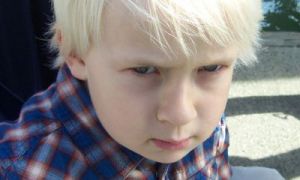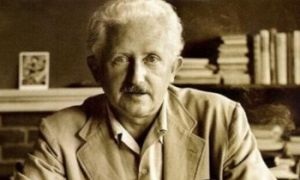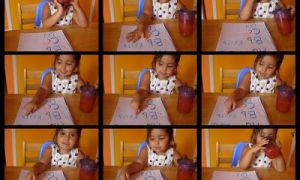

Developmental milestones are a set of functional skills or age-specific tasks that most children can do at a certain age range as they grow and develop. The following provides the developmental milestones from 2 months to 5 years old.
Language plays an important role in a child’s development. It enables a child to communicate effectively with their family, learn at school, socialize with friends, build relationships with others and complete simple tasks such as talking on the phone and buying something from the shops.
Toddlers use language in more sophisticated ways during this phase of their life. This occurs as a toddler has a better grasp of the rules of the language, through increased vocabulary and learning new skills. They are becoming increasingly familiar with the concept of conversation and through play and social interactions it strengthens and improves their verbal skills.
The language development of a school age child is quite vast and typically a wide variety of words are used to communicate thoughts, ideas and feelings. They often get over excited while talking, which may result in stuttering but normally this is only temporary. At this age, speech is of second nature and both speech and language are easily understood. School age children will also enjoy manipulating words by mimicking or teasing and begin to experiment with popular school chants and tongue twisters. Riddles and jokes are also common by this stage as they continue to build upon their vocabulary.
Preschoolers enjoy talking and are happy to tell their ideas or what they're thinking. They combine words with gestures and facial expressions to make their stories more believable and interesting. Words begin to flow easily and with little effort. During this age, preschoolers will have an endless amount of questions and seeks more detailed information about events or topics that interest them.
Language not only refers to the spoken word but it also incorporates gesturing, facial expressions and verbal sounds. This is why language development for infants begins from when your baby is born. Infants are aware of sounds in the environment. They listen intently to other's speaking and begin to cry if they hear an unexpected noise. This is all part of your infant's language development.
Babies use of language at this stage changes so much that it's hard to notice all the key changes that occur. By the end of this period a baby has transformed from non-verbal communicator into an active talker.
 Toddlers have a greater understanding of the world around them by this stage. Their cognitive development (also known as intellectual development and thinking skills) continues… Read More
Toddlers have a greater understanding of the world around them by this stage. Their cognitive development (also known as intellectual development and thinking skills) continues… Read More
 Infants begin to develop trust when parents begin to fulfil their needs. Such as changing an infant's nappy when needed, feeding on request and holding… Read More
Infants begin to develop trust when parents begin to fulfil their needs. Such as changing an infant's nappy when needed, feeding on request and holding… Read More
 Beginning at birth the construction of thought processes, such as memory, problem solving, exploration of objects etc, is an important part of an infant’s cognitive… Read More
Beginning at birth the construction of thought processes, such as memory, problem solving, exploration of objects etc, is an important part of an infant’s cognitive… Read More
 Toddlers want to do more on their own and do not like it when you begin to establish limits on their behaviour. Tantrums can become… Read More
Toddlers want to do more on their own and do not like it when you begin to establish limits on their behaviour. Tantrums can become… Read More
 Your preschooler is now able to focus their attention more accurately and is less influenced by distractions. The intensity of questions increase as your child… Read More
Your preschooler is now able to focus their attention more accurately and is less influenced by distractions. The intensity of questions increase as your child… Read More
 John Dewey is often seen as the proponent of learning by doing – rather than learning by passively receiving. He believed that each child was active,… Read More
John Dewey is often seen as the proponent of learning by doing – rather than learning by passively receiving. He believed that each child was active,… Read More
 Toddler advance and gains new skills in Gross Motor Development milestones achieved throughout earlier years. Co-ordination and challenges that could not be performed before such… Read More
Toddler advance and gains new skills in Gross Motor Development milestones achieved throughout earlier years. Co-ordination and challenges that could not be performed before such… Read More
 Erik Erikson developed a psychosocial theory to understand how we each develop our identities through eight stages of psychosocial development from infancy to adulthood. The… Read More
Erik Erikson developed a psychosocial theory to understand how we each develop our identities through eight stages of psychosocial development from infancy to adulthood. The… Read More
 At this point preschoolers begin to interact effectively with others. Play becomes more innovative and organized and “boyfriend” or “girlfriend” begins to emerge. Preschoolers have… Read More
At this point preschoolers begin to interact effectively with others. Play becomes more innovative and organized and “boyfriend” or “girlfriend” begins to emerge. Preschoolers have… Read More
 From now, babies begin to identify and respond to their own feelings, understanding other's feelings & needs and interact positively with others. A baby's social and… Read More
From now, babies begin to identify and respond to their own feelings, understanding other's feelings & needs and interact positively with others. A baby's social and… Read More

It is fairly common for your child to behave inappropriately as they begin to grow...
See more...
Erik Erikson developed a psychosocial theory to understand how we each develop our identities through...
See more...
Your preschooler is now able to focus their attention more accurately and is less influenced...
See more...© 2009-2025 Aussie Childcare Network Pty Ltd. All Rights Reserved.

